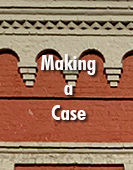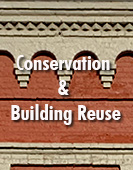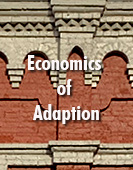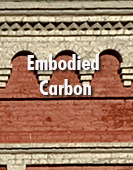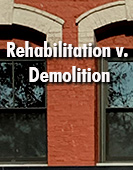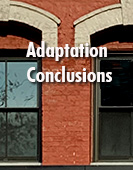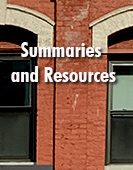- Heritage 101
- Advocacy
- Accessibility for Historic Places
- Climate & Sustainability
- Heritage Place Conservation
- Heritage Policy & Legislation
- Homeowners
- Intangible Cultural Heritage
- Reconciliation
- Indigenous Cultural Heritage
- Setting the Bar: A Reconciliation Guide for Heritage
- 1. Heritage and Reconciliation Pledge
- 2. Acknowledging Land and People
- 3. Celebrating Days of Recognition and Commemoration
- 4. With a Commitment to Learn
- 5. Committing to Strategic Organizational Diversity
- 6. Mission-Making Room for Reconciliation
- 7. Possession, Interpretation, Repatriation and Cultural Care
- 8. Shared Decision Making
- 9. Statements of Significance and other heritage planning documents
- 10. Heritage Conservation Tools, Local Government Act
- Racism: Do Not Let the Forgetting Prevail
- Taking Action: resources for diversity and inclusion
- Webinars On-Demand
Climate Adaptation: The Economics of Climate Adaption
Making a case to leverage existing and historic buildings for zero net carbon
3. The Economics of Climate Adaption
Heritage generates jobs and income, avoids waste from demolition, reduces the use of new materials and their associated costs, reducing the overall carbon footprint. This mindset is applicable to all existing buildings, whether deemed as heritage or not.
The economic sustainability of heritage is greater when we invest in repair and maintenance of heritage assets; this in turn generates growth in the communities’ appreciation of heritage. Policies and activities that improve or increase these factors contribute to a low-carbon economy and to the sustainability of heritage capital.10
In Europe, where there are strong government policies with respect to the energy performance of new and existing buildings, energy efficiency renovations (i.e. alterations) have played a strong role as a stabilizer of the building sector and the European economy, since the financial crisis of 2008. According to CHBA’s Economic Impacts of Home Renovation and Repair, home reno/repair in Canada had a greater economic impact than new construction. Any regulatory measure or non-regulatory instrument facilitating the uptake of alterations to existing buildings may increase the economic potential of this industry, provided that the regulatory measures are reasonable.5
UBC Renews showed that the cost of renewal was no more than 67% of the cost of a comparable new building, essentially meaning that every third renewed building is free. Part of a partnership with UBC and the BC government, they started with $320M in deferred maintenance. Buildings had no official heritage designation, but they were still worthy of retention. Approximately 60% of interiors were retained; 80% of materials were recycled/refurbished. They achieved an overall 21% energy savings in retrofitting. Initiating more programs based on the success of UBC Renews is recommended.3
Heritage conservation is an important part of the economic sector, from providing employment growth during the conservation/construction process, to maintaining and managing its assets and attracting further investment (for example, for tourism).10
Repairing, reusing, and retrofitting is a labour-intensive process, more so than new buildings, resulting in the creation of new jobs. Members of the public (based upon a UK Study) are more inclined to prioritise maintaining and repairing existing infrastructure before spending on new. An estimated 1 million new green jobs will be created in Europe to achieve the 2030 climate and energy targets, adding 1% to GDP. A transition to a low-carbon, efficient and resilient economy brings productivity benefits into the economy.10
Moving towards a circular economy, optimizing productivity, and using the existing building stock and heritage assets, contributes to a distinctiveness of a place, improving it for residents and tourists alike.10
The Historic Tax Credits for qualified improvements to heritage properties brought in by the Reagan Administration in the 1980s in the United States, has now been proven to be a net income generator for the US Treasury. BC should review the benefits to government that a program like this could provide, and potentially link it also to decarbonization.
[3] Hallé, Renée. “Renewal of University of British Columbia’s Chemistry Building Centre Block through Retrofits for Energy Efficiency.” UBC Renew, December 22, 2019.
[5] Canadian Commission on Building and Fire Codes. Final Report-Alterations to Existing Buildings: Joint CCBFC/PTPACC Task Group on Alterations to Existing Buildings. National Research Council Canada, 2020.
[10] Heritage Counts. Heritage and the Economy. Historic England, 2020.

